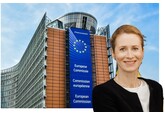
Moldova will introduce a mechanism to attract digital nomads, simplify the integration of SMEs with international payment platforms, and abolish penalties for non-repatriation of currency from e-commerce
This is provided for by legislative amendments approved by the government to accelerate the digital economy, legalize digital nomads, and simplify the integration of small and medium-sized enterprises into international payment platforms. According to the Ministry of Economic Development and Digitalization, the government has approved draft amendments to legislation necessary for the development of Moldova’s digital economy and the modernization of business management processes without the need for personal presence at government agencies. The document will regulate the activities of digital nomads for the first time, encourage the use of virtual cash registers and electronic tax receipts (eBon), and simplify the processes of interaction with international payment platforms for SMEs. Minister of Economic Development and Digitalization Doina Nistor noted that Moldova will introduce a legislative mechanism to attract digital nomads—qualified specialists who work remotely for companies abroad or manage businesses using digital technologies. According to her, this bill is part of the country's strategy to develop the digital economy and attract high-paid international business specialists. Each digital nomad will contribute about 186 thousand lei per year through accommodation fees, local consumption, and taxes, and will be entitled to apply for a residence permit for up to two years in Moldova with the possibility of extension, which will increase the country's attractiveness as a destination for professionals from various fields. “Digital nomads bring international experience, contributing to the transfer of know-how and stimulating innovation in key areas such as the digital industry, the creative sector, tourism, and electronic communications. We estimate that 1,500 digital nomads will come to Moldova each year, having a significant economic impact on the country of around 280 million lei per year,” said Doina Nistor. According to her, in addition to regulating the activities of digital nomads, the bill also includes measures aimed at removing barriers to the use of virtual cash registers and electronic tax receipts (eBon), which means lower costs for SMEs and easier compliance with tax legislation, including in rural areas and for online commerce. This will also help eliminate the risk of fines for entrepreneurs who are still required to provide paper tax receipts. In addition, the changes will promote the development of cashless payments and e-commerce by simplifying the integration of SMEs with international payment platforms such as Stripe, PayPal, and Revolut, as well as by abolishing penalties for non-repatriation of currency received from e-commerce (up to 100 thousand lei). At the same time, thanks to this package of changes, economic agents in rural areas who have POS terminals and register cash at home will be able to offer citizens the possibility of withdrawing amounts of up to 1,000 lei. This measure will contribute to improving financial accessibility and reducing the need to travel to ATMs in the region. The bill will ensure improved access for entrepreneurs to public services for business registration and development. In particular, the model of Single Service Centers will be expanded to include offices of payment systems, telecommunications and postal operators, notaries, and others. In addition, the company registration process will be simplified through more efficient use of automated data exchange between institutions. “This reform creates a solid foundation for enhancing Moldova's competitiveness, attracting foreign investment, digitizing public services for businesses, and reducing bureaucracy, which will contribute significantly to an economy based on added value and innovation,” said Doina Nistor. According to her, the Moldovan government reaffirms its commitment to supporting the development of a modern, accessible, and transparent digital ecosystem that will support both local entrepreneurs and foreign specialists who decide to contribute to the country's economic growth. // 29.04.2025 — InfoMarket







